

Unexpected events, such as fire, flooding, or pandemics, can affect businesses negatively. Such events can lead to business operation failures, or the worst-case scenario – losing potential customers and even bankruptcy. Planning for business continuity and implementing robust crisis management can help businesses overcome any unforeseen catastrophic incidents.
Here you will learn how business continuity forms the foundation crisis management. You will further understand how planning and preparing for any crisis allows businesses to implement strategies to reduce and minimize impact to their organizations.
Any disruptive event which affects a business’s facilities, IT systems, data, personnel etc. which leads to a stoppage in production, can be defined as a crisis. A crisis of a catastrophic nature can impact business production, resulting in an impact on business reputation, customer goodwill, profitability, production schedules, revenues, etc.
Crises could be major or minor in nature, and either internal or external. The severity of the crisis may result in your business exposed to adverse publicity. For any small or medium business which relies on customer goodwill and maintains good customer relationships, any adverse publicity could lead to a loss in sales and revenue.
Examples of potential business disasters which can be classified or lead to a crisis are:
You can read more about the different types of crisis here.
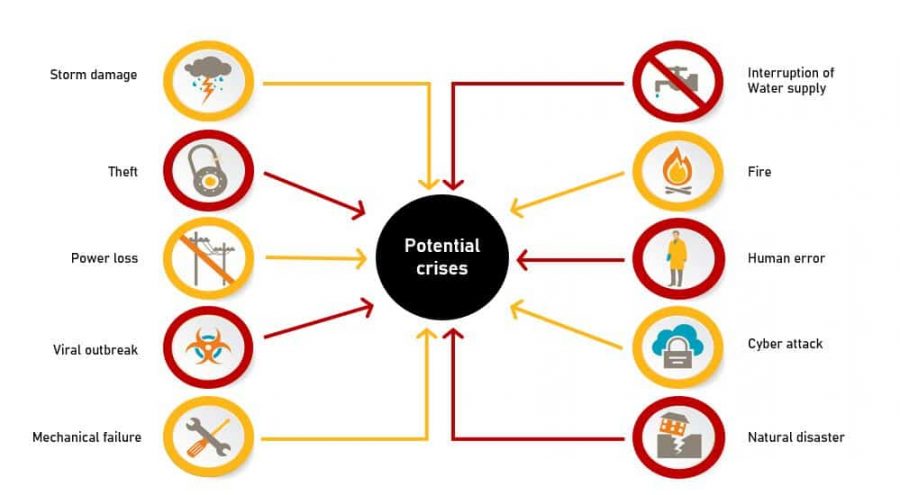
Even if you don’t face all of the scenarios mentioned above, you should still have backup plans ready according to situations.
Crises often come without warning, rarely giving enough time to businesses to react or take decisions accordingly. Therefore, businesses must implement business continuity and crisis management systems, processes and procedures to ensure any crisis can be handled professionally and competently.
Crisis management is the process of managing and dealing with crises. The process deals with all sorts of threats before, during, or after the crisis. It focuses on reducing the damage and prompt recovery.
For any organization, business continuity and crisis management go hand-in-hand. Your crisis management plan should be a component of your broader business continuity plan (BCP). Key elements to include in your Crisis Management Plan are:
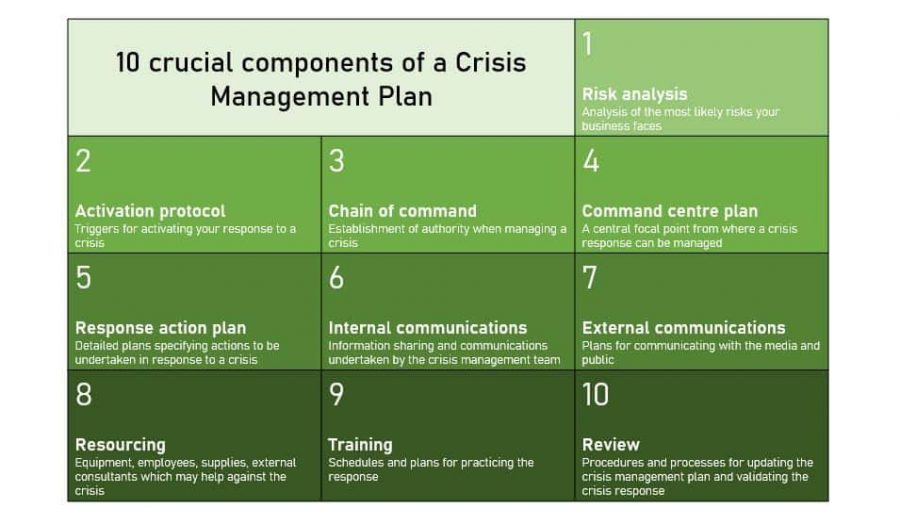
Business continuity and crisis management are closely related, with crisis management planning forming a part of the broader business continuity plan.
The Crisis Management Plan will typically detail the communication and decision-making elements of your business continuity plan. Once well documented, the Crisis Management Plan detail, enable and facilitate communication between all stakeholders.
It will further detail steps which are required for impact assessment, as well as interaction with media regarding the crisis, and any action to be taken to contain the crisis.
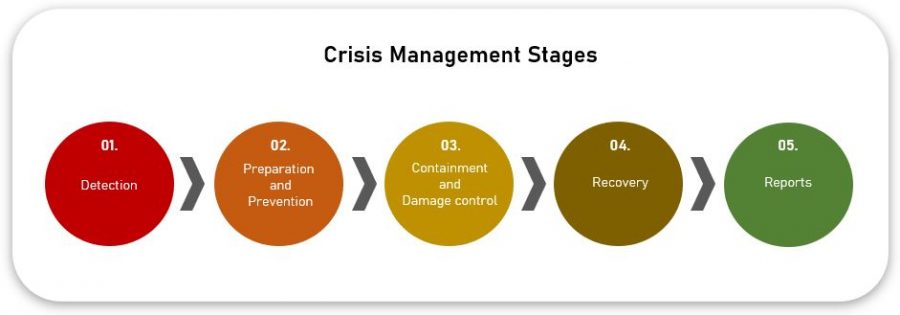
Every crisis management plan needs to be tailored to a business’ or organization’s specific needs. Fortunately, there is some commonality, and presented here are some of the common guidelines for formulating a crisis management plan:
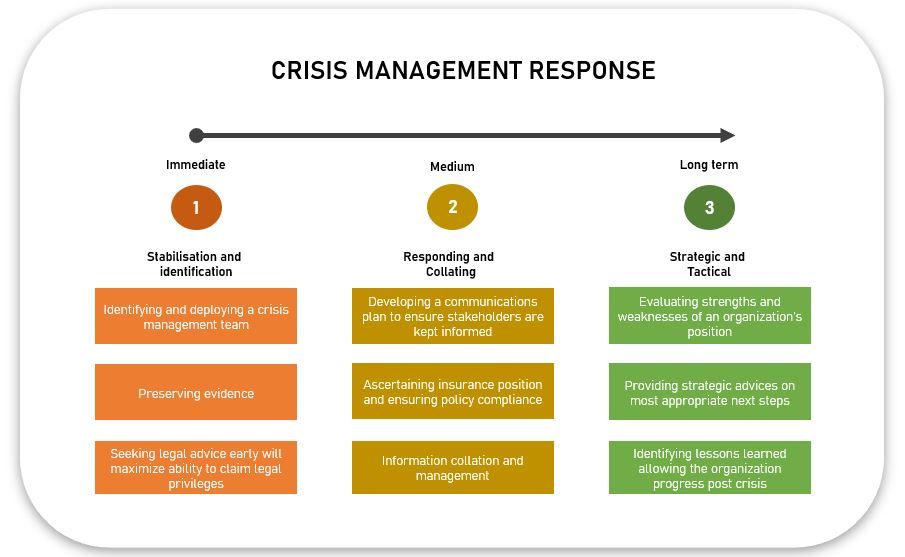
Business continuity focuses on ensuring an organization can continue to operate in the event of a disruption and set a path to return to normal business operations once the disruption or crisis has subsided.
Business continuity planning (BCP) typically consists of four stages, namely Risk Assessment and Business Impact Analysis (BIA), Developing of recovery strategies, Implementation of recovery strategies, and Testing, acceptance and ongoing maintenance of business continuity practices and procedures.
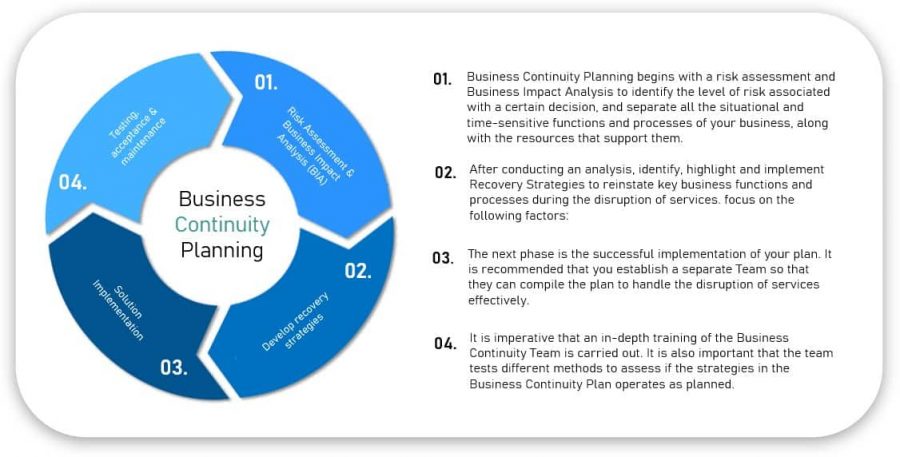
The pandemic is a perfect example of a global event which required businesses to invoke their business continuity and crisis management protocols.
In many cases, businesses activated their business continuity plans. As lockdowns became mandatory and prolonged, crisis management strategies were instigated to ensure organizations could continue to operate.
Any business continuity plan must implement clear risk management strategies, setting set clear metrics for measuring success.
A business continuity plan must have an alternative to maintain customer service in case of a disaster or catastrophic event. These alternatives can include data backup, emergency office locations, and emergency IT administrative rights.